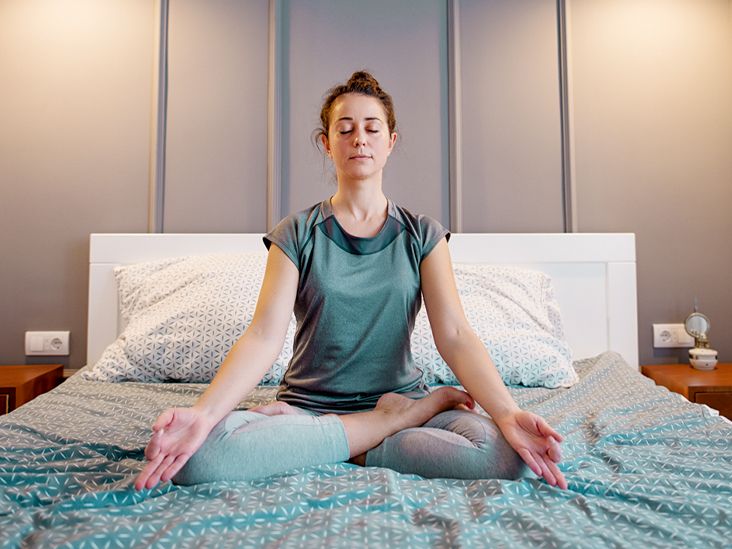
Creating a consistent nighttime routine is essential for improving sleep quality and overall well-being. A well-structured routine signals your body that it’s time to wind down, making it easier to fall asleep and stay asleep. Here’s how to establish an effective night routine based on proven strategies and expert recommendations.
Set a Consistent Sleep Schedule
A reliable sleep schedule is crucial for regulating your body’s internal clock. Aim to go to bed and wake up at the same time every day, including weekends. This consistency helps reinforce your sleep-wake cycles, making it easier to fall asleep and wake up refreshed[1][2][9]. Establishing a set timeframe for your sleep allows your body to anticipate rest, which contributes to better sleep quality.
Time Management Before Bed
Begin preparing for sleep at least 30 to 60 minutes before your designated bedtime. Allocate this time for winding down and engaging in relaxing activities, which alerts your mind and body to transition from the hustle of the day to rest[3][6]. Activities like reading, listening to calming music, or practicing gentle yoga can promote relaxation and signal that it’s time for sleep[2][9][10].
Create a Relaxing Environment

Your sleep environment plays a vital role in the quality of your rest. It should be conducive to sleep, meaning it should be cool, dark, and quiet. Aim to set your bedroom temperature between 65 and 68 degrees Fahrenheit, which is considered optimal for most people[1][4]. Use blackout curtains, earplugs, or white noise machines to minimize disturbances from outside light and sound[3][8]. Additionally, removing electronic devices or placing them out of reach can help maintain a distraction-free environment, preventing sleep disruptions caused by notifications or screen time before bed[1][11].
Limit Stimulating Activities

Reducing stimulating activities in the evening can significantly improve your ability to fall asleep. This includes avoiding caffeine and heavy meals within several hours of bedtime, as these can lead to discomfort and make it harder to rest[9][10]. Instead, focus on light snacks or calming herbal teas, such as chamomile, which can aid relaxation. Additionally, heavy exercise close to bedtime can also interfere with sleep; therefore, it's advisable to conclude any vigorous workouts at least an hour or two before sleep[6][12].
Wind Down with Calming Rituals
Incorporating soothing rituals into your bedtime routine can help you relax before sleep. Consider practices such as:
Meditation or Deep Breathing: These techniques can calm the mind and body, reducing anxiety and promoting relaxation[2][7]. Simple meditation practices can help clear your head of stressful thoughts, making it easier to drift off.
Warm Baths or Showers: Taking a warm shower or bath an hour before bed can help lower your body temperature post-bath, signaling to your body that it’s time to sleep[1][11].
Mindful Journaling: Spend a few minutes reflecting on your day or jotting down thoughts and worries. This practice can free your mind from racing thoughts and prepare you for rest[6][10].
Disconnect from Electronics
One of the most effective ways to improve sleep hygiene is to limit screen time before bed. The blue light emitted by phones, tablets, and computers suppresses the production of melatonin, the hormone responsible for sleep[7][11]. Aim to turn off all electronic devices at least an hour before bed to allow your body to produce melatonin effectively. Instead, engage in non-stimulating activities like reading a physical book or listening to soft music.
Ensure a Comfortable Sleep Space
Your sleeping area should be entirely dedicated to rest. Avoid using your bed for activities other than sleep and intimacy, as this can create associations that hinder your ability to fall asleep easily[8][11]. Keep your bedding comfortable and ensure your mattress is appropriate for your needs—this contributes greatly to a good night’s sleep.
Adjust Food and Drink Intake
Be mindful of what you consume in the hours leading up to bedtime. Avoid large meals, caffeine, alcohol, and nicotine, as these can interfere with your ability to fall asleep or stay asleep[3][9]. Instead, if you’re hungry, a light snack can be helpful.
Conclusion
Establishing a nighttime routine that incorporates these practices can lead to improved sleep quality, which in turn enhances daily functioning and overall health. By setting a consistent sleep schedule, creating a relaxing bedtime environment, disconnecting from stimulating activities, and practicing calming rituals, you cultivate the conditions necessary for a restorative night’s sleep. Make it a priority to implement these steps, and you may find the perfect path to peaceful slumber.
Get more accurate answers with Super Pandi, upload files, personalized discovery feed, save searches and contribute to the PandiPedia.
Let's look at alternatives:
- Modify the query.
- Start a new thread.
- Remove sources (if manually added).